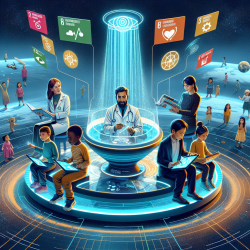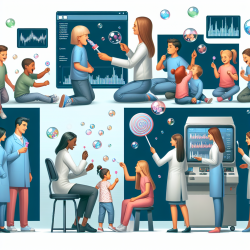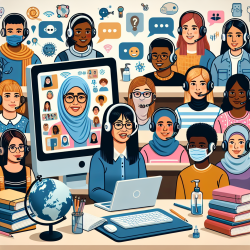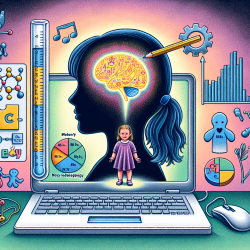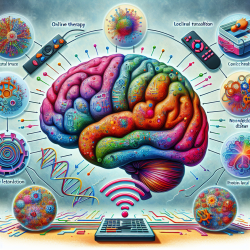Introduction
The United Nations Sustainable Development Goals (SDGs) present a visionary framework for global progress, yet the path to achieving these goals is fraught with challenges. As we approach the 2030 deadline, innovative strategies are needed to accelerate progress, particularly in low-resource settings. A recent study, "A New Vehicle to Accelerate the UN Sustainable Development Goals," sheds light on how development accelerators can serve as pragmatic tools to drive meaningful change. This blog explores how practitioners, especially those in speech-language pathology and online therapy services, can leverage these insights to improve outcomes for children and contribute to the broader SDG agenda.
Understanding Development Accelerators
Development accelerators are conceptualized as pragmatic actions that simultaneously impact multiple SDGs. They offer a strategic approach to achieving interconnected goals by leveraging synergies between different interventions. For example, in South Africa, cash transfers to poor households not only reduced sexual risk behavior in adolescents (SDG 5) but also supported other SDGs such as education and health.
By combining interventions like good parenting, school feeding, and cash transfers, practitioners can amplify their impact across various domains, including nutrition, cognitive development, education, and safety. This holistic approach aligns with the integrated nature of the SDGs, providing a roadmap for practitioners to enhance their practice.
Implementing Accelerators in Practice
For practitioners in speech-language pathology and online therapy, the concept of development accelerators offers a valuable framework for improving service delivery. Here are some actionable steps to consider:
- Identify Synergies: Look for opportunities to combine interventions that address multiple needs of children. For instance, integrating language development programs with nutritional support can enhance cognitive outcomes.
- Leverage Technology: Utilize online platforms to deliver therapy services, reaching a broader audience and reducing barriers to access. This aligns with SDG 4 (Quality Education) by promoting inclusive and equitable education.
- Collaborate Across Disciplines: Work with educators, healthcare providers, and community organizations to create comprehensive support systems for children. This collaborative approach can magnify the impact of individual interventions.
- Focus on Data-Driven Decisions: Use data to evaluate the effectiveness of interventions and identify areas for improvement. Data-driven insights can inform strategic decisions and enhance the overall impact of therapy services.
Encouraging Further Research
The study highlights the importance of identifying accelerator synergies and evaluating their cost-effectiveness. Practitioners are encouraged to engage in further research to explore new combinations of interventions and assess their impact on various SDGs. This ongoing research can provide valuable insights into best practices and innovative strategies for achieving sustainable development goals.
Conclusion
As practitioners dedicated to creating positive outcomes for children, embracing the concept of development accelerators can significantly enhance our impact. By implementing data-driven strategies and fostering collaboration, we can contribute to the global effort to achieve the UN Sustainable Development Goals. To read the original research paper, please follow this link: A new vehicle to accelerate the UN Sustainable Development Goals.
